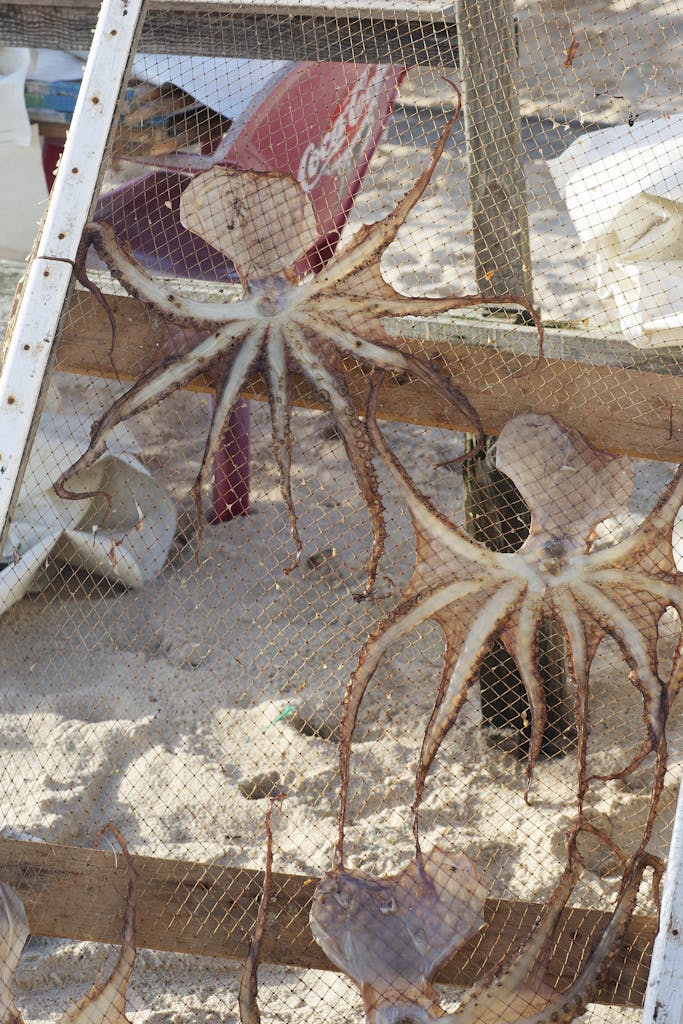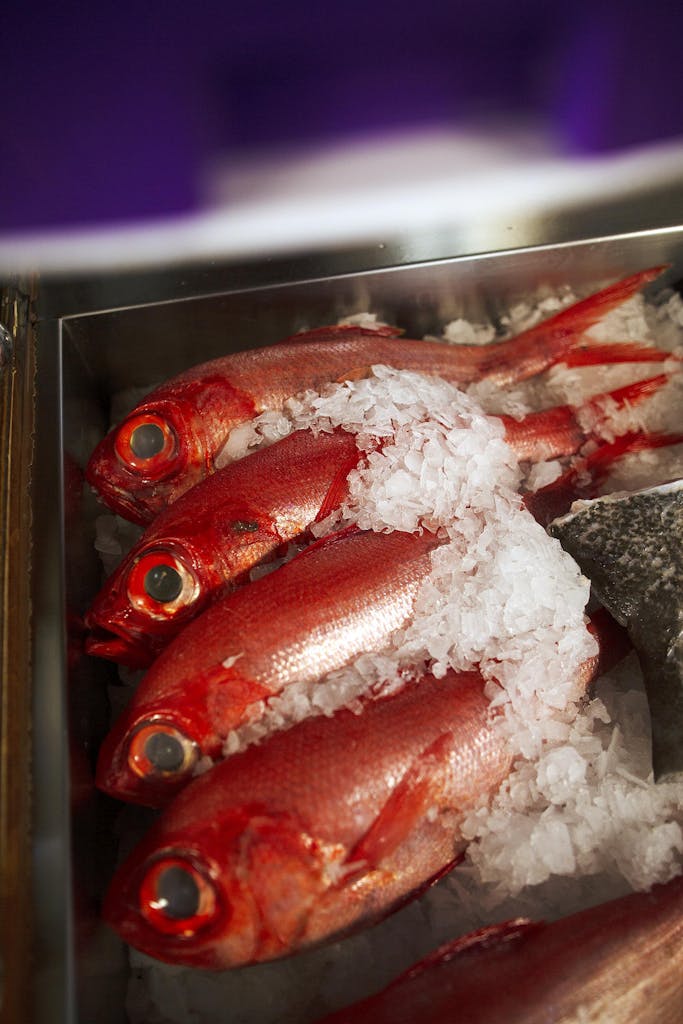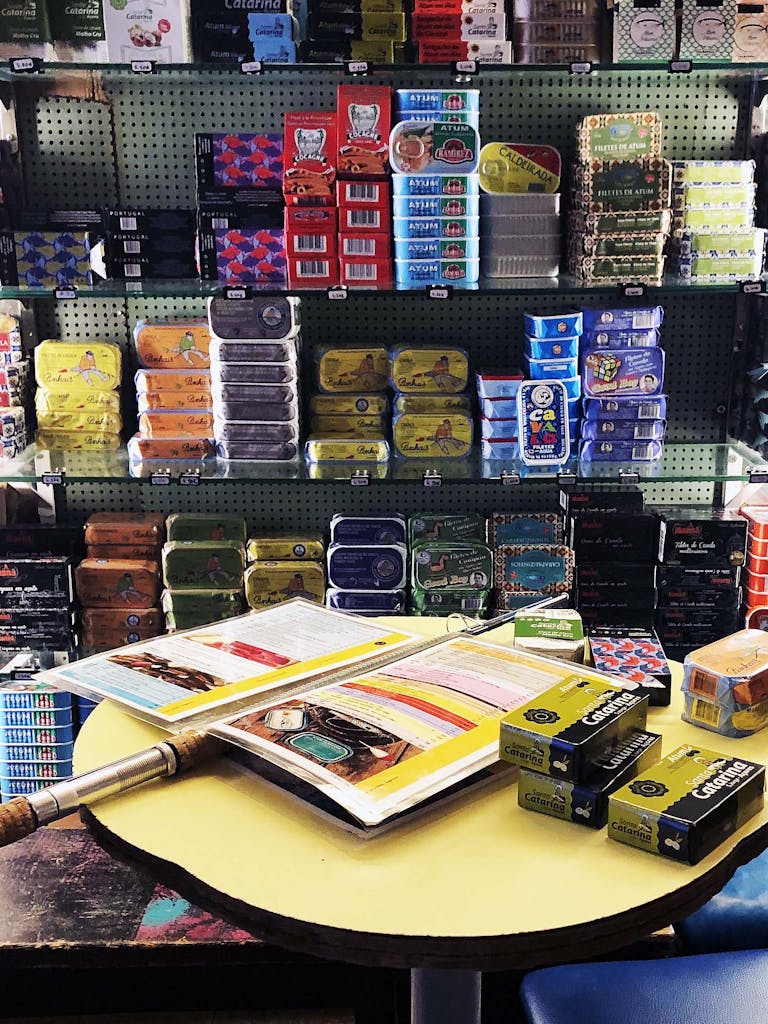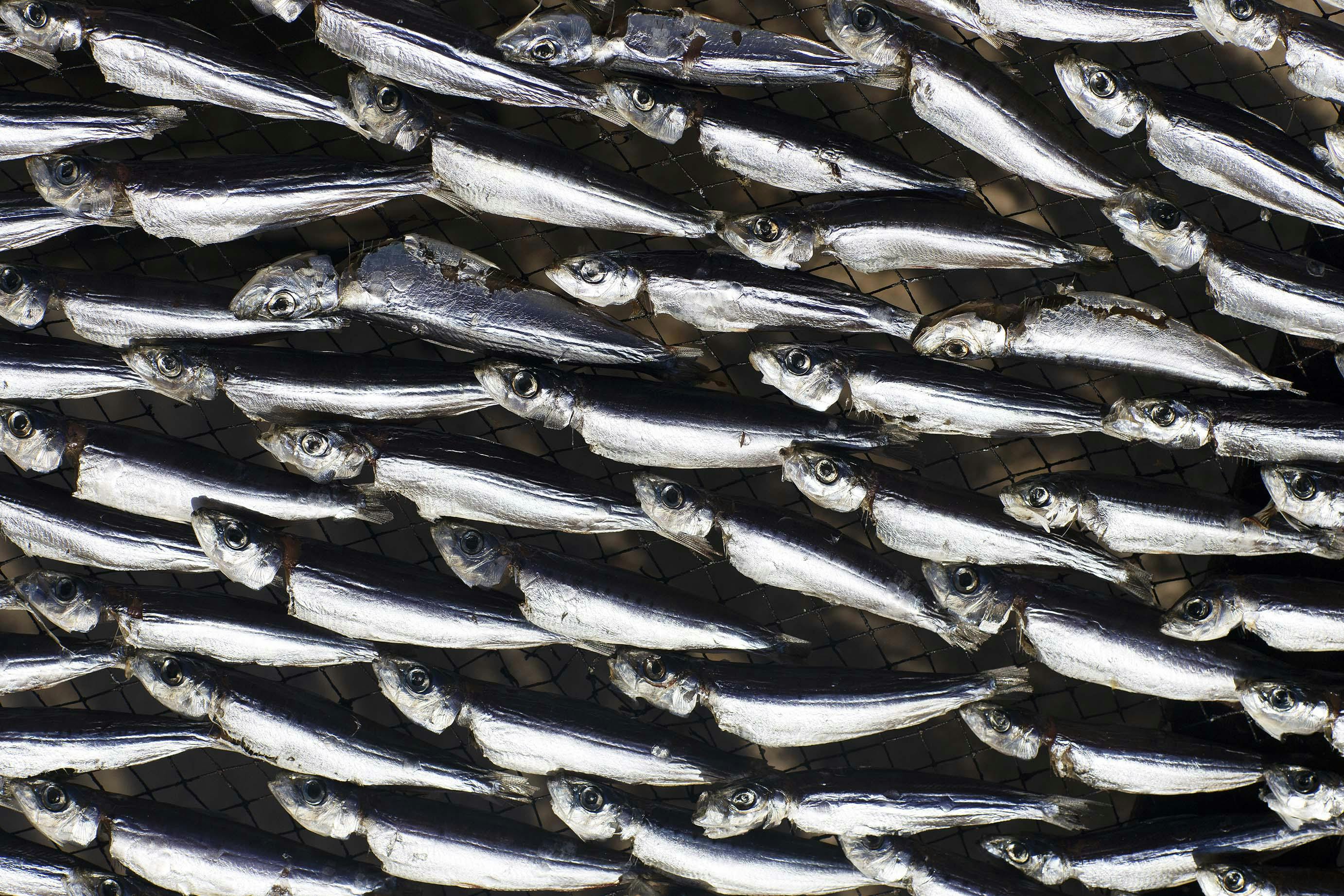S.A.L.T. Lab Radio: In Lisbon, Tinned Seafood Touts Fresh Flavors
Have you listened to the latest episode of Silversea’s S.A.L.T. Lab Radio podcast, “Saving Lisbon’s Restaurant Soul?” This companion piece, written by Lisbon-based culinary journalist Miguel Andrade, shares with us the simple pleasures of tinned fish — and will likely change your perception of the humble snack. Even better, Portugal’s so famous for its tinned seafood that it’s imported all over the world. If we can’t all cruise to Lisbon just now, you can probably find some offerings in your local gourmet grocery — or check out the Lisbon-based retailers we share below.

On a Saturday night, groups outside of Sol e Pesca, a bar in Lisbon’s Cais do Sodré neighborhood, spill out onto tables on the street late into the night. Some drink session, light beer, others prefer bottles of effervescent vinho verde. There is common ground on snacks: tinned seafood.
Petingas fumadas from José Gourmet, tiny whitebait in olive oil with a strong smoked taste, as if they’re coming fresh from the smokehouse; ovas de sardinha from Tricana, tiny strips of sardine roe that are a perfect topping to a slice of buttered bread; polvo em azeite from Ramirez, the tender and moist cross sections of octopus tentacles, fitting in a tin after being captured in the Atlantic coast and preserved in extra virgin olive oil; berbigão ao natural picante from Tricana, the smooth flesh of cockles marinated in a pleasant spicy brine; enguias de Murtosa from Comur, morsels of smoked adult eel from the Portuguese coastal village of Murtosa, that carry a silvery skin and sweet but balanced soft and flaky flesh.
Stepping inside Sol e Pesca is a feast for the eyes. A famed fishing shop once existed in its place, but the new owners kept the same strong ambiance. The walls are covered with an array of fishing tackle: rods, lines, hooks, bait, floats, and dozens of other interesting items only identifiable to experienced fishermen. And there are hundreds of colorful conservas (tins of fish), mainly from Portugal.

Portugal’s tinned seafood touts fresh flavors, convenience, and sustainability, making all of us slowly change the way we think about canned fish. From sardines and anchovies to octopus, cockles and even tuna, conservas are canned by hand in olive oil or tomato sauce, with salt or lemon, in a never-ending variety of different spices to complement their natural flavor, besides being hand-wrapped in tins with colorful and enticing labels.
Conservas are sewed into the Portuguese economic and cultural fabric. Not only does the country have a bountiful coast and munificent shores, but there’s also a tradition of fishing in the chilly waters of the Atlantic Ocean that goes back a thousand years. Portugal’s best seafood is processed at the peak of freshness and sealed inside delicate tin cans.

Conservas, as we know them today, are an edible luxury. They are not only a sustainable alternative to salmon or tuna: they have the freshest, locally caught fish and seafood inside, which fit so obligingly in tiny, portable, irresistible packages — a sure way to create or round out an extraordinary meal.
Tinned conservas are not just an alternative to the fresh seafood you buy from the market, but something wholly different: they’re part of the Portuguese daily life. They have been an inexpensive source of protein during periods of food scarcity and economic crisis. They take very little energy to store and can last a very long time, aside from being a convenient element to a variety of dishes in many different social settings.
Conservas are enjoyed frequently, not saved for some special occasion or offered as a gift.

There is no Portuguese national who doesn’t include two or three cans of sardines, tuna or octopus in their monthly shopping cart. Tinned seafood is widely accepted as a working lunch — brought from home and consumed straight from the tin, substituting the missing protein in a salad or rice bowl; included in a weekday family dinner by tired moms when they don’t feel like cooking; added to pizzas and pasta in Lisbon restaurants like Casanova and, more recently, opened and served at room temperature with some bread alongside a wine glass or aperitif in bars like Sol e Pesca.
Although the first tinned fish factory opened in Nantes, France, in 1822, canning anchovies in oil, it wasn’t until 1853 that the first commercial cannery opened in Portugal. Ramirez — now the oldest cannery in Europe — set up factories in Setúbal, just south of Lisbon, and in the Algarve region to can sardines in olive oil.
By 1912, Portugal was the top worldwide exporter of canned fish — with sardines being the most popular, followed by tuna. By 1925, with Europe still reeling from World War I, the demand for pre-packaged food had skyrocketed and some 400 canneries were in operation in Portugal.
Conservas, as we know them today, are an edible luxury: they are not only a sustainable alternative to salmon or tuna. They have the freshest, locally-caught fish and seafood inside, which fit so obligingly in tiny portable, irresistible packages — a sure way to create or round out an extraordinary meal.

Where to Buy Conservas in Lisbon
This third-generation family-run store, founded in 1930, is the oldest canned fish shop in Lisbon. It looks like an apothecary inside, with wooden interiors, but their shelves are exclusively devoted to preserving and selling their three canned labels: Tricana, Minor and Prata do Mar. Here, shopkeepers hand-wrap the cans in paper and tie the packages with colored twine.
Find it: Rua dos Bacalhoeiros 34 (Baixa)
Every major tinned fish manufacturer in Portugal is represented in this walk-in grocery, which opened in 2013. Lining the walls are shelves stacked with rows of sardines, octopus and mussels, packaged in shiny tins that are categorized by company logos. They also sell eel, trout, anchovy, and octopus, as well as the famous La Gondola sardines millésimées, which are marinated in olive oil for one year before going to the market — their flavor improves with ageing because of the oil maturation.
Find it: Rua do Arsenal 130 (Baixa)
Pans, knives, brooms, ceramics, fabrics, stationery, soaps — and, of course, tinned fish — are among the genuine Portuguese everyday items that former journalist Catarina Portas has rescued from oblivion and put on sale in her A Vida Portuguesa shops — all made in Portugal. A wide variety of conservas from brands like José Gourmet, Tricana, Minerva or Tenório can be found here.
Find it: Rua Anchieta 11 (Chiado)
Dois Dedos de Conserva
This tiny shop opened in March 2019 in the family district of Alvalade and it’s the place to go to find conservas of ventresca, mackerel roe, sardines in spicy tomato, mussels in escabeche, and many more from brands like Naval, Cocagne, Minerva or Pescarias do Algarve. Tea, sausages, jams, olive oils and wines are also on sale here.
Find it: Rua Acácio de Paiva 6 (Alvalade)

Sol e Pesca
This tiny place has metamorphosed from a fishing equipment store to a snack bar with only the lightest of makeovers. The name Sol e Pesca is the same, and the old decor — the walls still have rods, wires, baits, nets, reels, floats, hooks and boats — retain the ambiance. It’s now a great place to get together, where you can taste or buy conservas to go.
Here you can snack on Portuguese conservas alongside a glass of Portuguese wines or beer. Besides Muxama, also known as the ham of tuna, there are various options: sardines, trout, eel, trout, mackerel and cod, as well as sardine roe.
Find it: Rua Nova do Carvalho 44 (Cais do Sodré)
Also accompanying S.A.L.T.’s “Saving Lisbon’s Restaurant Soul” is “On the Culinary Trail: Rediscovering Lisbon’s Tasca Culture.” S.A.L.T. director Adam Sachs takes you, at least for now in a virtual sense, on a trek around Lisbon’s tascas. It’ll inspire you to visit — or revisit — Lisbon when the world opens up again.



















